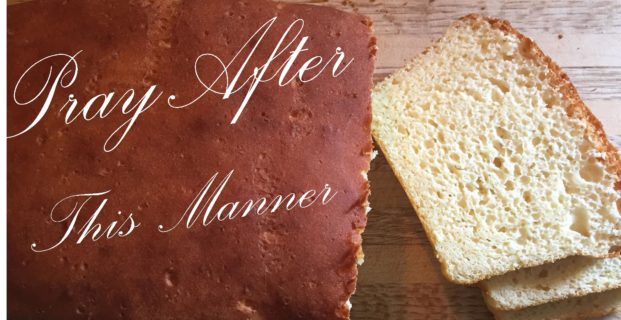In Luke 11:1 we read, “And it came to pass, that, as he was praying in a certain place, when he ceased, one of his disciples said unto him, Lord, teach us to pray, as John also taught his disciples.” From an initial reading of this verse one might ask, “Why did these grown men need to be taught how to pray?” After all, these men, being Jews, had no doubt entered the synagogues many times and heard the religious leaders (that is, the chief priests, the Pharisees, the Sadducees, the scribes) offer up prayers unto God. So, why did they need to be taught how to pray?
We may answer this question through the following observations. 1) These men, being disciples of Jesus Christ, observed that Jesus’ prayers were of a different “nature” than they had been accustomed to. Praying was something that Jesus did frequently – often in a secluded place – not restricted to “one-day-a-week”, nor offered in the “market place”, 2) When Jesus prayed, His prayers were communion with His Father, and not for the sake of men’s ears, 3) Jesus’ prayers declared: a) His adoration unto His Father, b) His complete submission unto His Father’s will, c) that His Father is the only one who can hear and answer our prayers, d) His dependence upon His Father for strength, encouragement, and care – not only for His ministry at hand, but also for His eminent “hour” to come. 4) Jesus’ prayers declared a “Father-Son” relationship – for which all disciples of Jesus Christ have through God’s saving grace, through a “Father-child” relationship.
In Luke 11:2-4 and in Matthew 6:9-13, we find where Jesus instructed His disciples to “pray after this manner“.
Luke 11:2-4 states,
“And he said unto them, When ye pray, say, Our Father which art in heaven, Hallowed be thy name. Thy kingdom come. Thy will be done, as in heaven, so in earth. Give us day by day our daily bread. And forgive us our sins; for we also forgive every one that is indebted to us. And lead us not into temptation; but deliver us from evil. Amen.”
But let us be clear here that to “pray after this manner” requires that from our “heart” our prayers are to declare: a) our adoration unto our Father, b) our submission unto our Father’s will, c) our supplication unto our Father, d) our dependence upon our Father for strength, encouragement, and care, e) and – unlike Jesus Christ – we must confess our sins before our heavenly Father. When we do “pray after this manner“, Jesus stated in Luke 11:9-10,
“And I say unto you, Ask, and it shall be given you; seek, and ye shall find; knock, and it shall be opened unto you. For every one that asketh receiveth; and he that seeketh findeth; and to him that knocketh it shall be opened.”
In the Book of James we find that if we do not “pray after this manner” our prayers will not be heard nor answered.
James 4:3 states,
“Ye ask, and receive not, because ye ask amiss, that ye may consume it upon your lusts.”
Consider for a moment the last time you prayed. Did you begin with adoration unto your Heavenly Father as in “Our Father who art in Heaven, hallowed be thy name” – or did you even speak His name? Did you tell the Lord that you would submit to His will as in “thy kingdom come, thy will be done on earth as it is in heaven” – or did you just begin your prayer by asking God to provide you something (based upon your desires)? When you offered your supplication [e.g., prayers, petitions] unto the Lord, did you thank Him for all of the answered prayers and daily provisions as in “give us this day our daily bread” – or was your prayer enveloped in “wants” and “self-gratification”? Finally, did you ask the Lord “to forgive you as you have willingly forgiven others” – or did you make a blanket statement of “Lord forgive me of all my sins”? If we are to truly “pray after this manner” – isn’t it time we clearly understand what Jesus meant and then learn the lesson that He taught His disciples when they asked?



